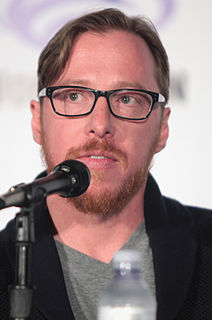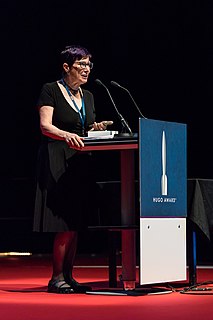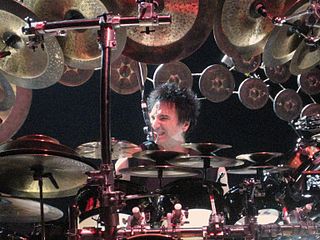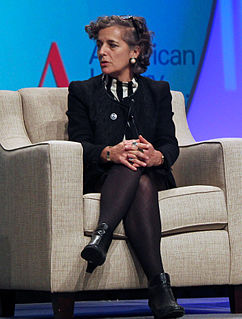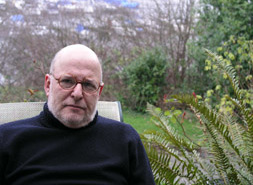A Quote by Sylvia Plath
What do you have in mind after you graduate?" What I always thought I had in mind was getting some big scholarship to graduate school or a grant to study all over Europe, and then I thought I'd be a professor and write books of poems or write books of poems and be an editor of some sort. Usually I had these plans on the tip of my tongue. "I don't really know," I heard myself say. I felt a deep shock, hearing myself say that, because the minute I said it, I knew it was true.
Related Quotes
I started out in graduate school to be a fiction writer. I thought I wanted to write short stories. I started writing poems at that point only because a friend of mine dared me to write a poem. And I took the dare because I was convinced that I couldn't write a good poem... And then it actually wasn't so bad.
I had in effect been thrown out of graduate school because I was a lousy graduate student, and I had to find a job, and I took the first job that came along. It happened to be a management trainee job in a life insurance company, and I just stayed. It was always, mainly, the idea was that I would support myself as a writer, and I knew I would have to have some sort of work, and it didn't make a whole lot of difference to me what it was. I mean, I could have been a paper hanger or something for that matter.
I know that one of the things that I really did to push myself was to write more formal poems, so I could feel like I was more of a master of language than I had been before. That was challenging and gratifying in so many ways. Then with these new poems, I've gone back to free verse, because it would be easy to paint myself into a corner with form. I saw myself becoming more opaque with the formal poems than I wanted to be. It took me a long time to work back into free verse again. That was a challenge in itself. You're always having to push yourself.
When I applied to Stanford, I applied for graduate work in the PhD program, not to the creative writing program, mostly because though I had some vague ambition of becoming a writer and I was trying to write poems and essays and stories, I didn't feel like I was far enough along to submit work to some place and have it judged.
If I'm still wistful about On the Road, I look on the rest of the Kerouac oeuvre--the poems, the poems!--in horror. Read Satori in Paris lately? But if I had never read Jack Kerouac's horrendous poems, I never would have had the guts to write horrendous poems myself. I never would have signed up for Mrs. Safford's poetry class the spring of junior year, which led me to poetry readings, which introduced me to bad red wine, and after that it's all just one big blurry condemned path to journalism and San Francisco.
You could say I'd rewritten the same novel three times and I thought I had to move on. The success of the book, and then the movie, had by then also created a commercial expectation and I remember touring America and seeing people in the audiences who I thought might not want to read the books I wanted to write next. My constituency had become broader, but more mysterious to me.
I had been composing just for myself, and people would say I played so orchestrally, and wondered if I thought about having someone write a piece for me for an orchestra. And I thought, I don't want someone else to write that. You know I finally had made an overhead chart of my drums and what pitches the cymbals and toms were tuned to, and what have you. And I started to compose just with what I had for my solo drumming.
Parker wasn't supposed to be a series. He was supposed to be one book, and if he was only going to be in one book, I didn't worry about it. And then an editor at Pocket Books said "Write more books about him." So I didn't go back at that point and give him a first name. If I'd known he would've been a series, I would've done two things differently. First, I would've given him a first name because that means for 27 books, I've had to find some other way to say, "Parker parked the car."
I know what I as an editor respond to is a voice. A voice is not just a stylistic thing, but it means someone who really has something to say. I think a lot of what I get from books - whether they be books of comics or books of literature - is a window into somebody's mind and their way of thinking. Somehow, I can recognize some of my feelings in seeing somebody who is actually expressing their own inner reality.
In the beginner's mind there is no thought, "I have attained something." All self-centered thoughts limit our vast mind. When we have no thought of achievement, no thought of self, we are true beginners. Then we can really learn something. The beginner's mind is the mind of compassion. When our mind is compassionate, it is boundless. Dogen-zenji, the founder of our school, always emphasized how important it is to resume our boundless original mind. Then we are always true to ourselves, in sympathy with all beings, and can actually practice.






